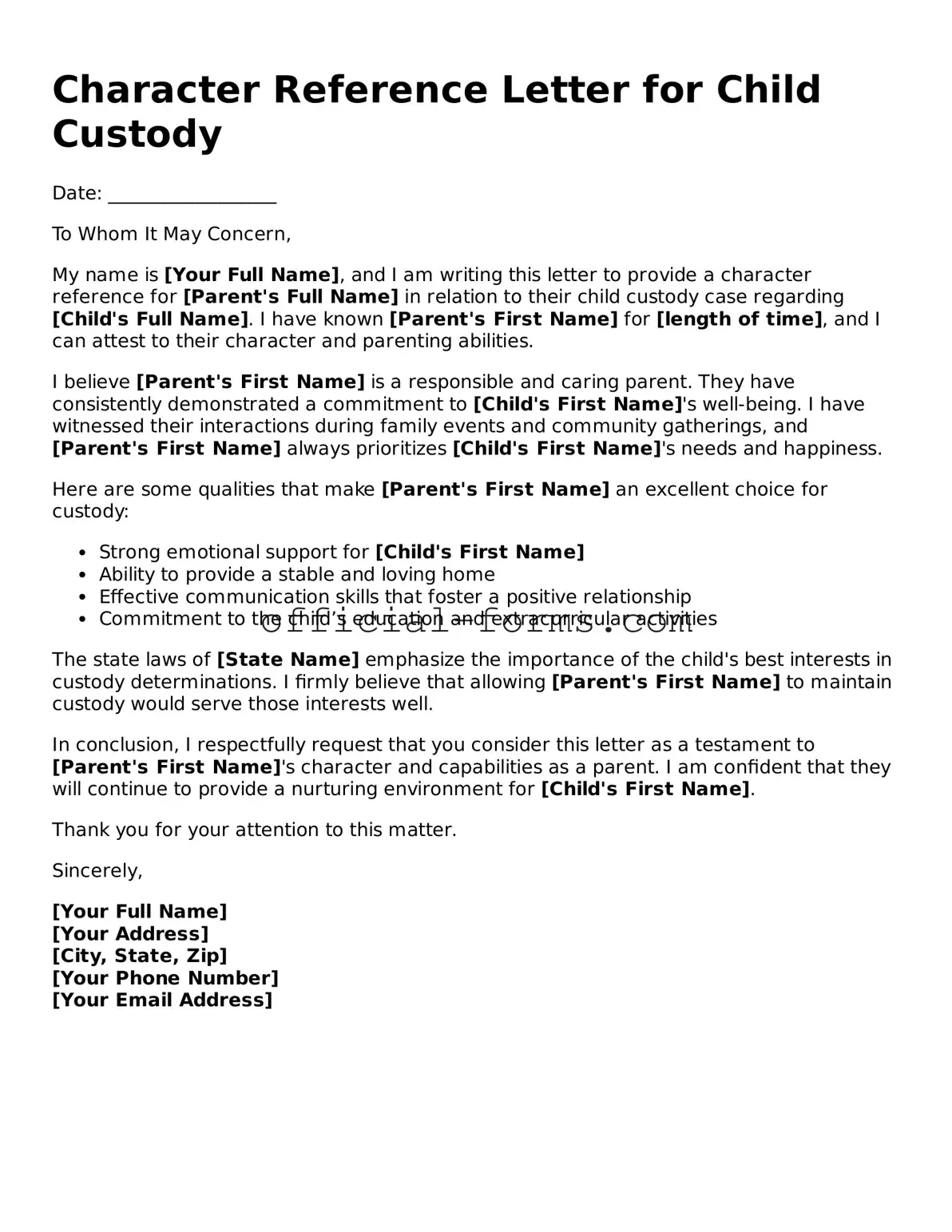Filling out a Character Reference Letter for Child Custody can be a daunting task. Many people make common mistakes that can undermine the effectiveness of their letter. One frequent error is not addressing the letter to the right person. It's important to ensure that the letter is directed to the judge or the appropriate court. Failing to do so can create confusion and diminish the letter's impact.
Another mistake involves providing vague or generic statements. A strong character reference should include specific examples that illustrate the qualities of the person being referenced. Instead of saying someone is a "good parent," it’s more effective to share a story that showcases their parenting skills. This brings authenticity and weight to the letter.
Omitting personal experiences is also a common pitfall. The letter should reflect the writer's relationship with the individual in question. Including details about how long the writer has known the person and in what capacity adds credibility. Without this context, the letter may seem less genuine.
Some individuals forget to mention their own qualifications. While the focus should be on the parent, it’s helpful to explain why the writer is in a position to provide a character reference. This could include professional background or personal experiences that relate to the situation. A brief introduction can establish authority and enhance the letter’s persuasiveness.
Another mistake is neglecting to proofread the letter. Spelling and grammatical errors can detract from the professionalism of the document. It’s essential to present a polished letter that reflects careful thought and attention to detail. A clean, well-organized letter speaks volumes about the writer's sincerity.
Some people fail to keep the tone appropriate. The letter should be respectful and serious, as it addresses a legal matter. Humor or overly casual language can undermine the letter’s seriousness. Striking the right tone is crucial for conveying respect for the court and the process.
In addition, writers sometimes forget to include their contact information. Providing a phone number or email allows the court to reach out for further clarification if needed. This small detail can make a significant difference in how the letter is received.
Another common error is writing a letter that is too long or too short. Aim for a concise letter that gets to the point without unnecessary fluff. A letter that is overly lengthy may lose the reader's interest, while one that is too brief may lack substance. Striking the right balance is key.
Finally, failing to understand the purpose of the letter can lead to miscommunication. The goal is to advocate for the child’s best interests. Keeping this in mind helps guide the content and tone of the letter. A clear focus on the child's welfare will resonate more strongly with the court.
Avoiding these mistakes can significantly enhance the effectiveness of a Character Reference Letter for Child Custody. By being mindful of these common pitfalls, writers can create a compelling and supportive document that serves the best interests of the child.

